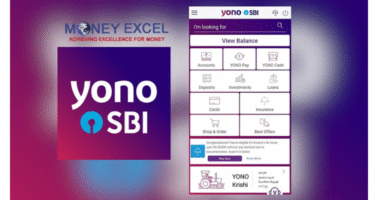As part of the ongoing efforts to streamline toll collection and promote digital transactions on highways, the government has recently announced new toll tax charges and updated rules regarding the use of FASTags. These developments are expected to have a significant impact on businesses and commuters alike, leading to changes in cost structures and operational procedures across the transportation sector.
The introduction of new toll tax charges aims to ensure better maintenance of highways and a more efficient toll collection system. By adjusting the toll rates in line with the cost of infrastructure upkeep and improvements, the government seeks to provide a sustainable source of funding for road maintenance and development projects. This move is crucial in light of the increasing demand for better highways and transportation networks to support economic growth and connectivity across regions.
One of the key changes related to toll tax charges is the implementation of dynamic pricing based on the type of vehicle, its size, and the distance traveled on the highway. This variable pricing mechanism is designed to reflect the actual usage of the road infrastructure and encourage more equitable distribution of toll costs among different categories of vehicles. Moreover, the new toll tax charges may also incentivize the use of more fuel-efficient vehicles or alternative modes of transportation, thereby supporting environmental sustainability goals.
In parallel with the revised toll tax charges, the government has also updated the rules governing the use of FASTags for electronic toll collection. FASTags are RFID-enabled stickers that allow for automatic payment of toll charges without the need for cash transactions at toll plazas. By mandating the use of FASTags on all vehicles using national highways, the government aims to reduce traffic congestion, enhance transparency in toll collection, and promote digital payments in line with the broader push towards a cashless economy.
Under the new FASTag rules, vehicles without a valid FASTag will be subject to higher toll charges as compared to those equipped with the electronic payment device. This differential pricing strategy is intended to encourage greater adoption of FASTags among vehicle owners and facilitate smoother traffic flow at toll plazas. Additionally, the updated rules include provisions for stricter enforcement measures to ensure compliance with FASTag usage requirements, such as penalties for non-compliance and vehicle registration restrictions for repeat offenders.
Businesses operating in the transportation and logistics sector are likely to be directly impacted by the changes in toll tax charges and FASTag rules. For trucking companies, fleet operators, and logistics service providers, the new toll pricing system could result in changes to transportation costs and route planning strategies. Moreover, the mandatory use of FASTags may necessitate investments in upgrading vehicle technology and infrastructure to ensure seamless integration with electronic toll collection systems.
In response to the evolving regulatory landscape, businesses in the transportation sector will need to adapt their operations and pricing models to remain competitive and compliant with the new toll tax charges and FASTag rules. This may involve re-evaluating cost structures, renegotiating contracts with clients and suppliers, and implementing technology solutions to automate toll payment processes and track compliance with FASTag regulations. Overall, businesses that proactively adjust to these changes are likely to gain a competitive edge in the market and enhance their overall efficiency and sustainability.
In conclusion, the introduction of new toll tax charges and updated FASTag rules represents a significant milestone in the government’s efforts to modernize the transportation infrastructure and promote digital payments in the country. While these changes may pose initial challenges for businesses and commuters, they also offer opportunities for enhanced efficiency, cost savings, and environmental sustainability in the long run. By staying informed about the implications of the new toll tax charges and FASTag rules, businesses can position themselves for success in a rapidly evolving transportation landscape.






